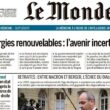Future Plc, the UK’s largest magazines group, this week consolidated its position with the acquisition of TI Media, the UK-based, print-led publisher formerly known as IPC. Its portfolio of 38 brands includes: Decanter, Country Life, Homes & Gardens, Woman & Home, What’s on TV, TV Times, Horse & Hound, Chat, Woman’s Own, and Golf Monthly.
The £140m deal, announced in October, was completed after the company satisfied the conditions imposed by the UK’s competitions regulator. It was forced to sell World Soccer and Amateur Photographer magazines to Kelsey Media, and the Trusted Reviews tech website to Incisive Media. Last month, TI Media had sold (for the benefit of Future) the digital marketing agency Collective Europe (CE) to Azerion, of the Netherlands.
Future announced that the three transactions had netted £1.4m. But this is less than the proceeds of the CE sale. The agency, which had 2019 revenue of about £6m, is thought to have had a value of some £2m.
The clue to what Future had to do in order to achieve the UK disposals (at a deeply unpromising time) came in an email to Incisive Media staff whose chair Tim Weller described the funding of its “relatively low risk opportunity” to acquire the £2.5m-revenue Trusted Reviews: “The acquisition will be funded partly by the vendor <TI Media> who has provided a contribution to working capital and partly by the company…” Put simply, Incisive was paid £500k to take on Trusted Reviews.
Similar provisions were also made to persuade the £25m-revenue Kelsey to acquire Amateur Photographer and World Soccer. The magazines are believed to have had annual revenues of some £2m but are now loss-making.
In themselves, the forced disposals (and funding) are insignificant and were less onerous than Future might have feared, given some of the larger sectors (like homes) where its portfolio overlaps with TI. But the acquisition itself is another matter. It was agreed back in October – before the outbreak of the coronavirus, recession and lockdown.
It risks becoming a nightmare for Zillah Byng-Thorne, the six-year CEO who has transformed Future into a £1bn high-growth, digital group through a robust strategy, strong systems and smart acquisitions in the UK and US. The listed business (founded 35 years ago by TED’s Chris Anderson) has been thrilling investors for the past few years. In 2019, Future EBITDA of £54.5m increased almost three times on revenues of £221.5m (+70%). Earnings per share jumped by almost 50%. It has been flying.
That’s why the £140m deal had been so well received, even though it appeared to load-up Future with much of the legacy print the company had spent the last few years escaping. Even the fact that TV listing weeklies account for a troublingly large proportion of TI Media profits has been viewed as an opportunity for Future to restore profitability to a wide range of the monthly magazines with which it is much more familiar.
Even the price – equivalent to 80% of TI’s £180m revenue – seemed attractive, as did the broad portfolio of brands, many of which have relatively minor digital activity. It was a transformative opportunity for tech-savvy Future. But the deal was signed and sealed exactly three months before the Coronavirus hit the UK.
Future maintained its public optimism this week: “The TI Media acquisition continues to offer a compelling strategic and financial rationale, with entry into new market verticals through its leading brands, and expansion within existing markets. Leveraging Future’s proprietary technology platform and global operating model, we remain excited about the long term opportunity.”
But Byng-Thorne must regret having to pay the previously agreed price, if not having to complete the acquisition at all during what may already be the worst economic conditions for decades. It is believed that Epiris private equity refused to re-negotiate the terms of a deal whose only pre-condition was approval by the competitions regulator. Future just couldn’t get out of it.
The urgent plan now is to reduce overheads, especially property, technology and systems. But the combined £400m-revenue business will be generating much less profit than was once forecast. Who knows whether revenues will get even worse, for how long retail and employment restrictions will continue, and when the advertising and exhibition markets will recover?
This week’s disposals are a reminder that Future may be unable to sell any unwanted operations for reasonable prices during the downturn. It may, instead, have to close and/or merge many magazines and events. It will have to find innovative, low-cost ways to do things. And executives must – for weeks yet – do all this while being restricted to managing their new teams and 1,000 new employees on Google Hangouts or Zoom.
The TI Media acquisition was always going to be a major test, even for Future’s high-performing CEO. It’s much tougher now.




